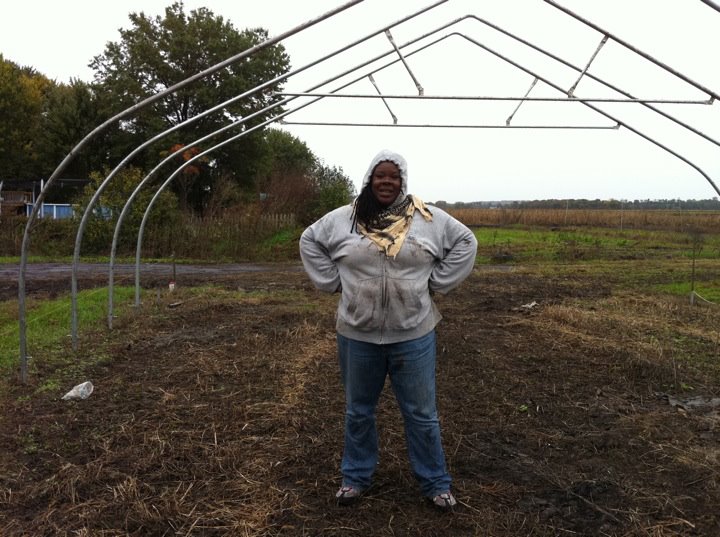Grist is proud to present the Change Gang — profiles of people who are leading change on the ground toward a more sustainable society and a greener planet. Some we’ve written about before; some are new to our pages. Some you’ll have heard of; most you probably won’t. Know someone we should add to the Change Gang? Tell us why.
 Life as a skate punk growing up in the northern Wisconsin town of Minocqua wasn’t always easy, recalls Erick Boustead.
Life as a skate punk growing up in the northern Wisconsin town of Minocqua wasn’t always easy, recalls Erick Boustead.
“We would always be getting kicked out of places while we were skateboarding,” he says. “We didn’t act out too much in school, but there was always a stigma associated with our music and skateboarding.”
“So we decided to organize.”
Boustead and his friends began a series of local music festivals and ended up raising $1,000 — enough to get a skate park built. The experience, says Boustead, “laid a foundation for seeing what is possible if you put a lot of energy into something, and try to put a positive spin on something that is unrightfully stigmatized.”
Boustead has been building on this foundation ever since as an environmental activist, events organizer, and co-founder of a media production company dedicated to helping nonprofit advocacy groups communicate their messages.
The son of a psychotherapist and a nurse who worked providing health care at the nearby Lac du Flambeau Indian reservation, Boustead grew up with a strong orientation towards helping other people. But from very early on he was also a musician, a drummer who listened carefully to politically oriented punk bands like Propagandhi and Good Riddance. A sustained effort to combine those two passions — arts and activism — is the theme of Erick Boustead’s evolving career.
“From a young age I was influenced by how art could communicate things that words were maybe not so good at,” says Boustead. “I definitely communicate better through music and art than words. So I feel that I can maybe help move things forward by creating spaces where people will be moved on an emotional or physical level.”
As an undergraduate at the University of Minnesota’s Carlson School of Management, Boustead managed to win the prestigious Udall Scholarship for his “commitment to environmental services.” At the same time, he and a group of similarly minded students founded Substance, a nonprofit booking and events management company that specialized in putting together politically minded music festivals in which activists from various realms — environmental justice, social justice, indigenous people’s rights — could network together.
Activism might seem an unusual pursuit for a business school student. But it makes sense in terms of the purposeful, get-under-your-skin agitation that’s fundamental to punk music. Going to business school — “the center of the Death Star,” jokes Boustead — ensured that Boustead would never become complacent.
“I don’t ever want to feel like I’m too comfortable,” says Boustead. “I have a fear of getting stagnant. If there is comfort then work isn’t being done.”
One of the highlights of his college years illustrates his point. When the Republican National Convention came to Minneapolis-Saint Paul in 2008, Substance organized a music festival on the lawn in front of the state capitol building, and invited the band Rage Against The Machine as a surprise guest. The state police were not amused, and pulled power for the festival — at which point Rage Against The Machine grabbed a megaphone and performed an a cappella concert in the middle of the audience.
“It was a perfect ending to what we had put months of work into,” remembers Boustead.
Substance continued organizing national tours and events for a few years beyond Boustead’s college days, but eventually he felt it was time to try something new. Along with another Substance veteran, he started a nonprofit venture, Line Break Media — a video production and online media consulting outfit dedicated to helping other socially activist groups get their message out.
“A lot of environmental justice organizations,” says Boustead, “are shut out of funding pools and don’t have the capacity to create multimedia productions or communicate the work that they were doing. And they also don’t necessarily network with other groups working on social justice. By doing that kind of work for them, we can open up space for them to start thinking about organizing in a much broader way.”
The name “line break” came from a vision Boustead had of a fish breaking the line cast by a fisherman, and thus “breaking free of the dominant culture.” But he soon realized that there were multiple overlapping meanings — for example, it suggests a poetic device, a “strategic line separation to emphasize some type of emotion of thought.”
“Then I realized that it was also an HTML code. Then we knew we would have the nerds to back us as well, so it was perfect.”
Bringing punk rockers and nerds together? Maybe not such a bad plan for trying to change the world.


